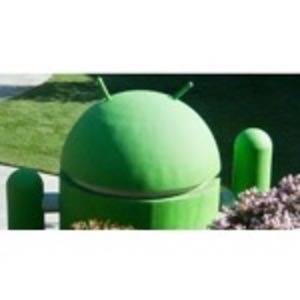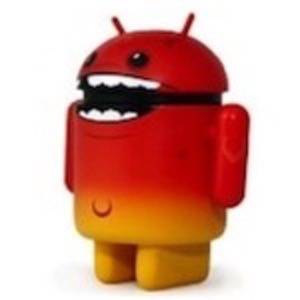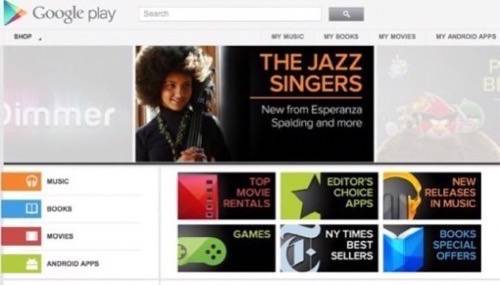The most profound thing I’ve heard lately was from a guy standing behind the counter of an empty RadioShack on St. Patrick’s Day in Boston. Smartphones are like the cereal aisle in the grocery store, he said. There are a thousand options but really, there are only a couple varieties. Applied to Google’s relationship with Android, what we see is an ecosystem that has become increasingly commoditized. The Android brand has been diluted and while its core features come from Google, the search giant is not the first company that people think of when the platform is mentioned.

This is one of the reasons why the Android Market has been rebranded as Google Play. Android is a strong ecosystem, but for Google it has become a weakened brand. Android has the power to buoy Google’s other floundering media properties. Play is part of Android, but it’s also the hub of the company’s bicycle spokes.

Think Android: What Comes to Mind
What is your first thought when you think of Android? Likely a little green robot and a sleek black smartphone. Perhaps something from Star Wars or Battlestar Galactica. From a mobile perspective, Google may not be the first company a consumer recalls. Think Android, I think Samsung. Think Android, I think Motorola and its Droid series. Think Android, I think Verizon.
This is not just a matter of devices and carriers. Think Android apps. I think about the Android Market. Think Android apps, I think of the Amazon Appstore for Android. Think Android Apps, I think Samsung’s app store loaded onto many of its devices. Or I think GetJar. Or Verizon’s app store.
Android is everywhere. That’s fine for Google since its longstanding belief is that the more eyeballs it owns, the better Google’s core product – advertisements – will perform. The problem for Google is that it has also lost control of the Android brand. That likely necessitated the rebranding of the Android Market.

What if an OEM built a device off of Android, completely stripped out all of the core Google products like Talk, Voice, Maps and Gmail but kept the Android Market. There was little in the Android Market that told users it was a distinctly Google product. Look at what Amazon did with the Kindle Fire. It stripped out all of Google’s core apps and the Android Market but was still able to profit from the Android name through its own Appstore.
In retrospect, renaming the Android Market was a branding necessity.
Why Play?
The choice of the word “Play” has baffled many people. In the comments section of Android’s developer-focused Google+ page, many people called for the name Google Market. It makes sense, they said, because it could keep at least part of the familiarity of the Android Market brand. Google did not need to worry about getting in a branding war with Microsoft and the Windows Phone Marketplace because, well, many people do not even know the Windows Phone Marketplace exists.

Yet, Play does not always describe what can be found in the former Android Market. The developers that spoke out against the Play theme were the ones that could not see their apps, like enterprise communications tools, listed in a repository that focused on the idea of playing. Play is not Work. Work is actually the direct opposite of Play.
It is not that the enterprise apps are going to take their ball and go home (or, back to work) but it does put them in a peculiar position. The fundamental idea behind the rebranding, from a consumer perspective, was to showcase the fact that the Android Market was more than just Android apps.
Look at the Play homepage and you will note that the featured Android apps are on the bottom of page, under albums, books and movies. Putting all of these categories next to each other is unique to Google. Amazon and Apple both allow users to shop with one user ID, as does Google, but iTunes is distinct from the App Store. Amazon’s books, video on demand and Prime streaming are distinct from the Appstore for Android. You likely came to Play to look for an Android app, perhaps one of those aforementioned enterprise or utilities. But, Google will remind you that it does indeed have plenty of content for you outside of apps. Google is trying to piggyback its other content initiatives on top of Android.

What Play is not is Android. It contains a piece of Android, albeit an important piece, but just a piece. Play is Google, a strong global brand that is undiluted by the commoditization that has become the Android ecosystem. Play is not Verizon. Play is not Samsung. Play is not Amazon. In the cereal aisle, Play is unique.

















